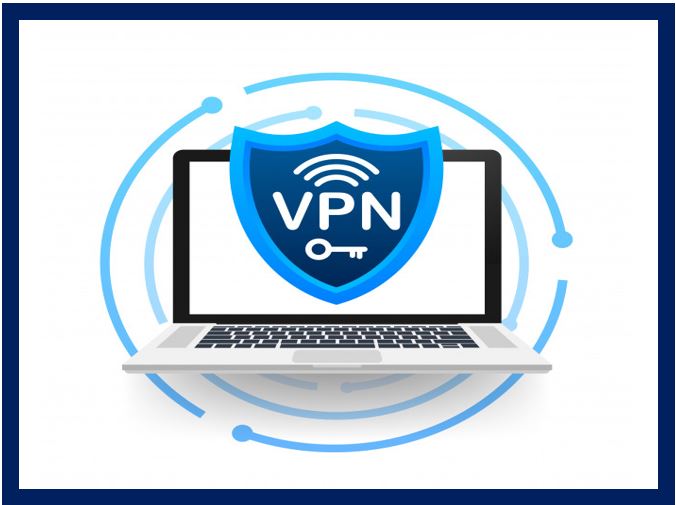
It’s no surprise that securing your online privacy and data should be a top priority. Especially if you’re dealing with sensitive financial and personal information. One way to do this is to use a VPN passthrough.
VPN passthrough is a type of encryption protocol that provides an additional layer of security for your online traffic, helping to ensure that all your data remain private and confidential. In this article, we will take a closer look at what VPN passthrough is, how it works, and how you can use it to further protect yourself online.
Benefits Of Using A VPN Passthrough?
According to PureVPN, a VPN passthrough is a feature that allows traffic from a VPN client or server to pass through a router. This can be useful if you want to connect to a VPN server on the other side of the router, or if you want to connect to a VPN client on the router’s opposite side.
There are several benefits to using a VPN passthrough.
- A VPN passthrough is a service that allows you to connect to a VPN server without going through your ISP.
- A VPN pass-through can help to protect your online activity from government surveillance. It can help you bypass censorship and access blocked content.
- It can help you improve your security posture by allowing you to encrypt your traffic. as it can help prevent eavesdropping and man-in-the-middle attacks.
- it can help you improve your speed and performance by reducing latency.
How Does A VPN Passthrough Work?
A VPN passthrough is a feature of routers that allows VPN connections to pass through them without any issues. This means that the router will not block or interfere with the VPN traffic in any way. For a VPN passthrough to work, the router must be configured to support it. Most routers that come with built-in VPN support will have this feature enabled by default, you can usually enable it in the router’s settings.
VPN passthrough works by routing the VPN traffic through a router that supports the protocol. The router will then encrypt the traffic and send it to the VPN server. The server will then decrypt the traffic and send it back to the router. The router will then send it back to your device.
Is VPN Passthrough Safe?
A VPN passthrough capability enables a router to receive VPN traffic. This can be useful if you have a VPN server that you want to connect to from various locations. However, it’s important to note that not all routers support VPN passthrough.
If you’re considering using a VPN passthrough, it’s important to do your research and make sure that the router you’re using is safe. There are a few different things to look for when determining if a router is safe for use with a VPN Passthrough:
- The router should have up-to-date and supports security features. This includes things like encryption and firewalls.
- The router should be from a reputable manufacturer.
- The router should have positive reviews from other users.
- Make sure that both sides of the connection have been configured correctly.
- Make sure that you use a VPN for more security that is properly configured to allow traffic.
- Keep an eye on your bandwidth usage, as encrypted traffic can use more bandwidth than unencrypted traffic
What Types Of Devices Can Use VPN Passthrough?
VPN passthrough is a feature that allows traffic to pass through a VPN server without being processed by the server. This can be useful for devices that do not support VPN connections, or for situations where the VPN server cannot be reached.
Several types of devices can use VPN passthrough:
- Routers: Many routers support VPN passthrough, which allows devices connected to the router to access a VPN server.
- Firewalls: Some firewall devices support VPN passthrough, which allows traffic to pass through the firewall to a VPN server.
- Network printers: Some network printers support VPN passthrough, which allows them to be accessed from a remote location via a VPN connection.
- PCs: Many laptops and desktop computers have built-in VPN software that can be used with VPN Passthrough.
- Smartphones: iPhone and Android phones both have built-in VPN support and can be used with VPN Passthrough.
- Tablets: iPad and Android tablets also have built-in VPN support and can be used with VPN Passthrough.
- Gaming consoles: PlayStation 4 and Xbox One both have built-in support for certain types of VPNs
How To Set It Up?
If you’re looking to set up a VPN passthrough on your router, there are a few things you’ll need to do. First, you’ll need to make sure that your router supports VPN passthrough. Many routers don’t support this feature, so it’s important to check before proceeding.
Once you’ve confirmed that your router supports VPN passthrough, you’ll need to configure the settings. The web interface of the router can be used to accomplish this. You’ll need to enable the VPN passthrough option and then specify the protocol, usually, PPTP is the one you want to use.
After saving your changes, you should be able to connect to your VPN server without any problems. If you’re having trouble, make sure that your firewall is not blocking the VPN traffic.
Conclusion
So, to sum up, VPN passthrough is a feature that allows your router to support VPN connections. It works by allowing the data that comes in and out of your network to pass through the virtual private network so it can be secured as it travels between networks.
This is an important tool for keeping your online activities secure when using public Wi-Fi or other potentially unsecured networks. We hope you have learned what VPN passthrough is and how it can help keep you safe while surfing the web!
Interesting Related Article: “How To Pick The Right VPN?“

